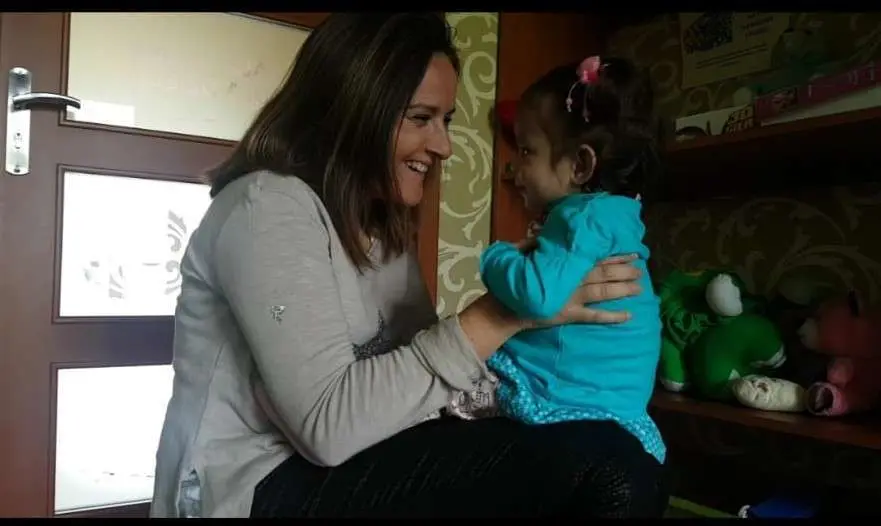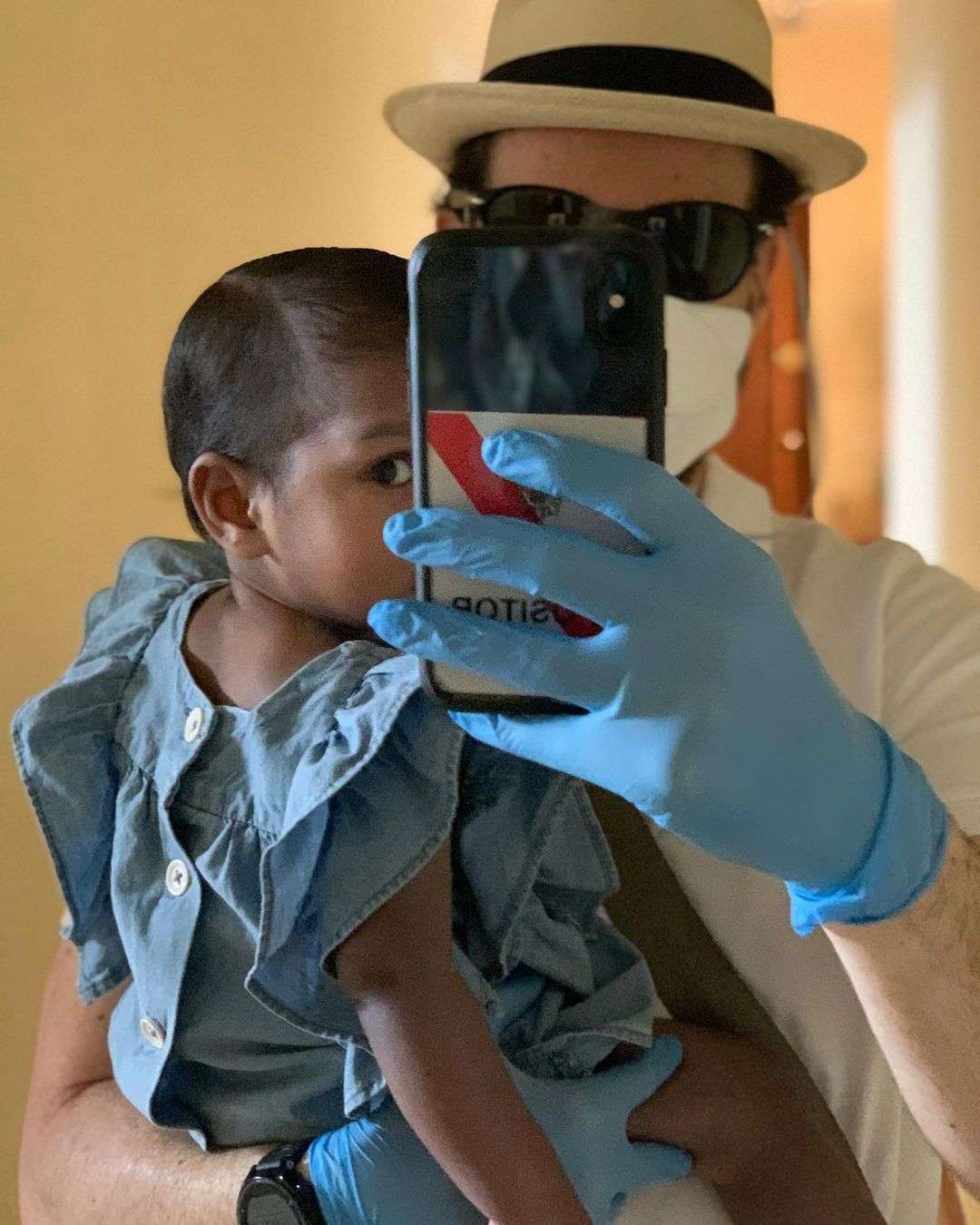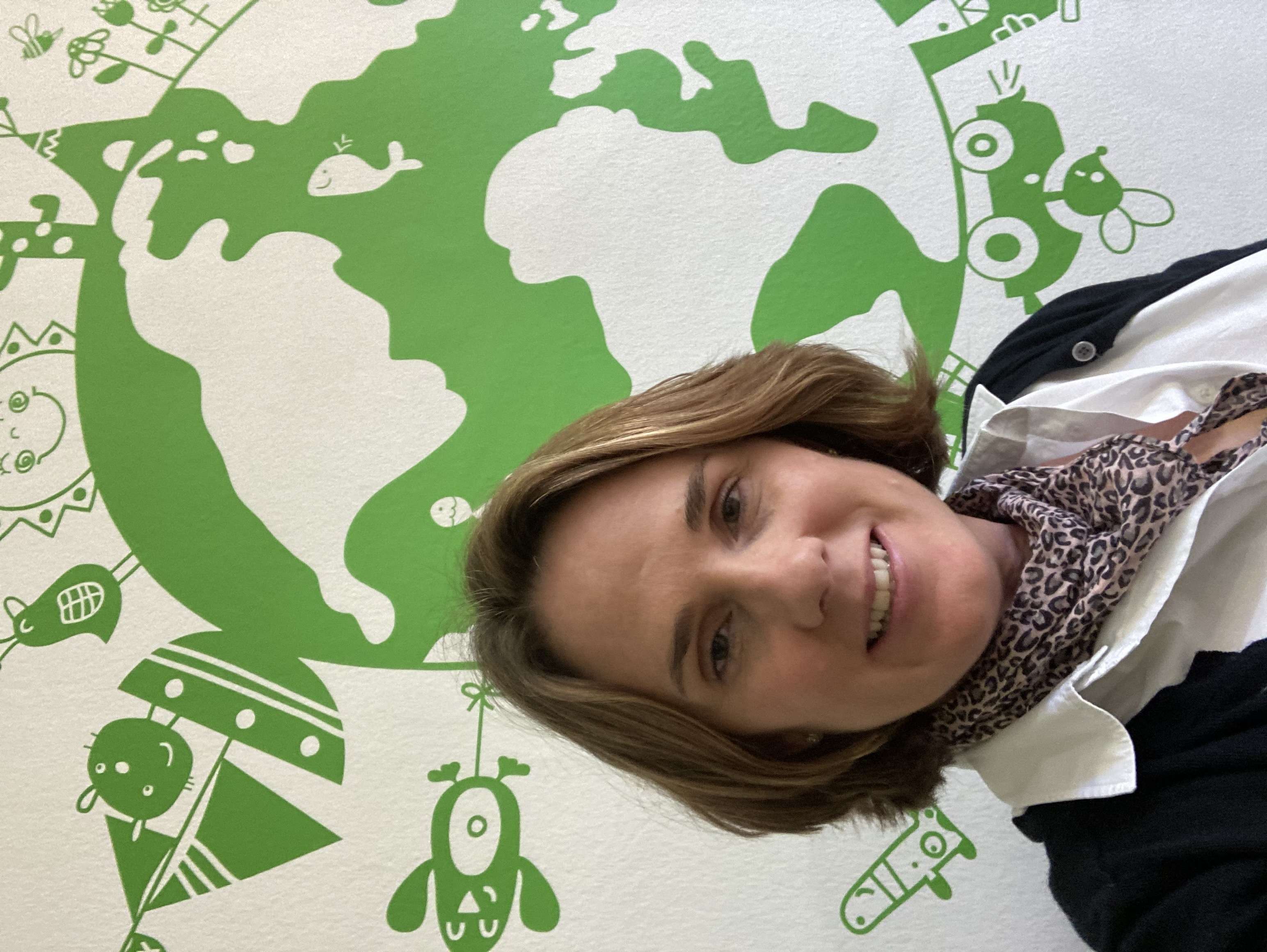COVID-19 adds another obstacle to adoption processes

The adoption process is long and complex.
"It is one of the most beautiful, demanding and challenging things I have ever done in my life," says Julio Lleonart, an adoptive father. Adoption is a long and complicated journey that many families decide to undertake each year. With the arrival of the pandemic caused by COVID-19, and therefore the confinement and border closures, the adoption process has been affected. Deadlines have lengthened, procedures have been halted and the dates for adoptive families to pick up their children have been postponed.
Adoption processes are characterised by being complicated and lengthy. "These are families who know they have to wait an average of four years," says Consuelo Ibarra, a lawyer for the accredited bodies at the Kune adoption and post-adoption centre, and director of two of them, Creixer Junts and Bradopta. It is a path full of red tape, aggravated by the situation caused by the pandemic. "It's a one-year wait that doesn't count", says Consuelo.
In addition, everyone agrees that the adoption process could be speeded up. "You just need the will of those who manage the bureaucratic processes," says Cristina Abellán, an adoptive mother.
Many of the families involved in the adoption process, even in the final wait to travel to pick up their children after all the paperwork has been completed, found their plans wiped out by the pandemic. Home confinement, closed borders and cancelled flights.

This situation has caused many of these families to suffer many problems, mostly anxiety, as well as more serious ones such as depression, as explained by the psychologist Montse Lapastora, an expert in adoption for more than 20 years and author of 'Adopción, trauma y juego' (Adoption, trauma and play), 'Mirándome con amor' (Looking at me with love) and co-author of 'Cuida' (adoption test).
When the state of emergency was declared, all trips planned for those dates were immediately cancelled. "They didn't know how long it would be, there was a great deal of uncertainty", explained Consuelo Ibarra.
Throughout this situation, associations in charge of international adoptions, as well as professionals such as psychologists, assisted the families by offering support. " We have provided very direct support to families", says Consuelo Ibarra. Professionals have tried to encourage and alleviate the anguish of the families through constant communication and dedicated, non-scheduled attention. "We just had to bring them home," she said laughing. Families' attitude to the situation was surprising at the Kune centre: "We have found patience and fortitude on the part of the families, which also says a lot about them", said Consuelo.
Julio Lleonart and Raquel Ferreiro are adoptive parents who travelled to pick up their daughter just before the state of emergency was declared. "We were among the last to cross the border," said Julio. The couple travelled to India in late February and arrived in Spain with their daughter in the first week of March.
According to data published by the Ministry of Social Rights and Agenda 2030, international adoptions declined over the last seven years. In 2014, a total of 824 international adoptions were registered, which have been decreasing until 2018, with 445 adoptions registered in total.
According to the data provided by Kune, comparative data recorded in 2019 and data recorded in 2020 show a total of 24 intercountry adoptions in 2019 compared to 14 adoptions in 2020.
With the state of alarm in force and until all public bodies and administrations began to telework, there was a standstill in all their activity. "Administrations closed, public bodies collapsed...", explained Consuelo Ibarra. Once teleworking began, all the procedures continued, as Consuelo points out: " As normal as possible". " There was not as much of a halt as people said", she pointed out.

A lawyer at the Kune centre and director of Bradopta and Creixer Junts, she explained how the halt affected those families waiting to travel to pick up their children. However, she notes that procedures and "paperwork" resumed as soon as it was possible. In addition, she adds that the administration was "quite supportive".
However, perceptions about what happened during the pandemic contrast with one another. Adoptive father Julio Lleonart, for his part, expresses his indignation and discontent. For him, the problem came with post-adoption, with formalities such as registration papers, applying for the health card... "processes that should have been quite simple, took us a world away". He also points to the lack of coordination between institutions as the main problem.
Despite the measures announced, "the registry office had no minimum services", said Julio. "I called the police," he explained. When the National Police arrived, they drew up a document issued by order of the judge, stating that they were not to be attended due to insufficient services. "I went home knowing that adopted children come with an EU family visa that allows them to stay in the country until the entire 90-day administrative procedure is regulated. " The administrative time was the same, but the child remained unregistered", explains Julio Lleonart.
"It was a constant struggle against the administration," explained Julio, who pointed out that " they seemed to be an opponent instead of being there to help you".
For adopted children, adapting to their new life is a great effort, and the arrival of confinement makes this adaptation even more difficult. These children are particularly lacking in affection, which affects their relationship with others and their environment. "Parents did their best out of nothing", said Montse Lapastora. She also explains that many children enjoy going out in the street, but there are others who are afraid of it. "For many of them, being locked up at home has been like going back to their mother's womb", "it has served to reinforce their lack of security".
With the arrival of de-escalation and the opening of borders, travel for international adoptions also resumed. According to Consuelo Ibarra, the first family in Kune was able to travel to the Dominican Republic on July 4, but, she explains, it depends on the date on which each country decided to open its borders.
COVID-19 has made adoption processes difficult and stalled them for a while, but it has not prevented many parents from embracing their children and many children from finding a home in their parents' arms.








